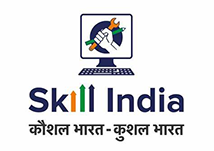The Labour Market Information System (LMIS) provides quantitative and qualitative information and intelligence on the labour market that can assist labour market agents in making informed plans, choices, and decisions related to their business requirements, career planning, education and training offerings, job search, recruitment, labour policies and workforce investment strategies. The agriculture sector recorded satisfactory growth due to improved technology, irrigation, inputs and pricing policies. Livestock, poultry, fisheries and horticulture are surging ahead in production growth in the recent years and will have greater demand in the future. Despite the structural changes, agriculture still remains a key sector, providing both employment and livelihood opportunities. LMIS is a set of institutional arrangements, procedures and mechanisms that are designed to produce labour market information and is a great tool for all the stake holders of Agriculture sector. It will help policy makers to take informed decisions; it will help employers to understand the quality and quantity of labour supply to utilise the human resource optimally; and it will help the potential employees by giving them information regarding skill gap and employment opportunity. The special need of LMIS in agriculture is because of the acute information asymmetry prevalent in the sector. Agriculture is burdened excessively with under-employment, under-development leading to low wage and consequently low standard of living. The current status of the sector is because of low income and limited livelihood options availability due to lack of skill training, seasonal unemployment and the unorganised nature. The inception of LMIS will cater to both ends, i.e., demand and supply end, thereby providing bargaining power in the hand of agricultural labour. This could help control the burgeoning migration of agriculture labourers to secondary and tertiary sector. Developing Indian agriculture sector from traditional to robust modern sector require an intensification and market orientation of agriculture, and a step towards
it is LMIS. For more, click here...


